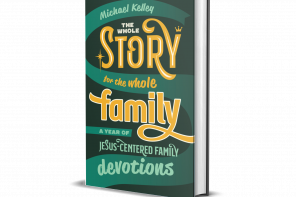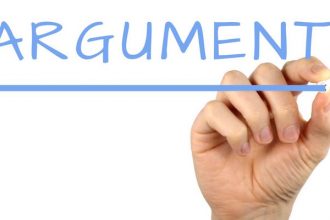Life is about making decisions. Some are big, some are small – but we all make thousands of decisions every single day. Sometimes those decisions are so easy, so commonplace, so simple, that we don’t even really think about them. We just decide, almost without even deciding. A form in the road presents itself before us and we simply walk.
But then there are other decisions – decisions in which the implications of choosing this way or that one are much more apparent. That’s not to say the other kind of decisions don’t have implications; it only means we are more aware of those implications. In cases like these, we think. And we ponder. And we weigh. And we make lists of pros and cons. And hopefully, at some point, we even pray and ask the Lord for wisdom. Needless to say, it’s a longer and more arduous process.
As you walk through that process to answer this main question of what decision to make, you will likely be asking more questions:
- How will this decision affect my family?
- How will this decision influence our lifestyle?
- How will making this decision change our future?
Those are just a few. Depending on the nature of the decision to be made, there are also likely questions about finances, about living arrangements, about calling. These are all questions to be answered, as much as is possible, in our pursuit of the final answer. The ultimate decision to be made. But here is one other question to ask in the midst of all those others – another question to help you get to the heart of your decision making process:
How am I thinking about this?
This question is different than the others because the other questions have tangible, practical answers. This, though, is different. It’s a question of philosophy. Of framework. It’s sort of the question behind the other questions.
Think of it like this:
We are currently undergoing a bit of a plumbing saga at our house. For years, our kitchen sink has failed to drain properly. So every few months, we would answer the question of the sink by dumping Drano down it, or by calling a plumber to come and flush it out, or a variety of other methods. But recently those fixes have failed to work, even temporarily. So we have had to stop trying to clear a blockage, to replace some piping entirely.
In order to really get to the answer, we had to look at the pipes beneath. We had to examine the framework – the foundation – instead of just answering the basic question.
Let’s take another example. Let’s say you have a decision to make about moving to a new home. Perhaps a job change has prompted this need. So you have to answer the direct question about which house to buy. Now there are other questions to answer as well, all of which lead to this answer:
- What school district do our children need to be in?
- What space needs do we currently have?
- What space needs will we have in the future?
All good and worthy questions to think through. But how are you thinking about all these questions? What is the framework behind the search for answers? Often, when you ask that question, you are forced down a road of self-examination. You have to examine your own priorities, your own principles, maybe even your own pride. You have to make sure the framework is right before building the answer to the direct question.
Back to the scenario, when you ask, How am I thinking about this?, you will be forced to examine why you want to own a home at all. What its purpose is. How you are meant to steward this. Or whether you are thinking of that at all. As you think about how you are thinking about it, there will no doubt be other issues you will encounter as well. Deeper issues. Heart issues. Reflections of how ingrained the worldview with Jesus at the center is within you.
Don’t skip this step, Christian. Don’t just decide. Don’t just think. Think about how you are thinking and allow your heart to be shaped in the meantime.
Subscribe to MichaelKelley.co
Never miss a new post. Subscribe to receive these posts in your inbox and to receive information about new discipleship resources.





